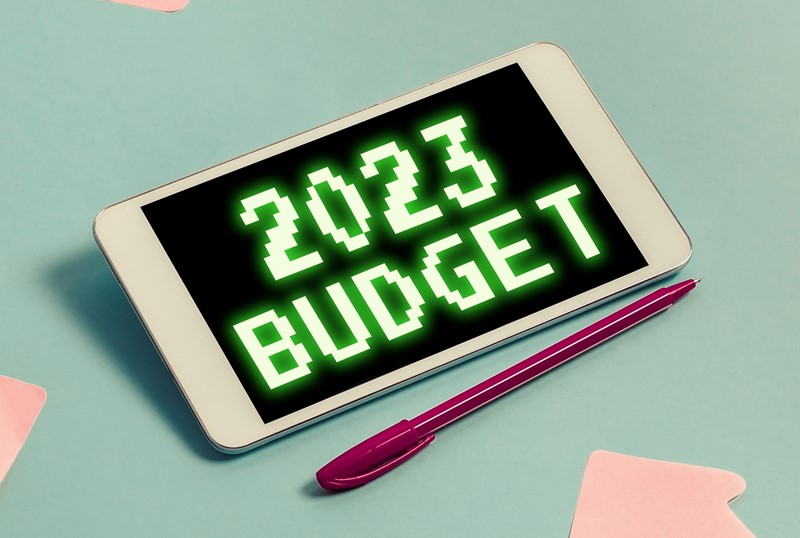As expected, the Chancellor has found wriggle room in his fiscal rules that have allowed him to please his fellow Conservatives by reducing the impact of taxation. Not an unfamiliar tactic for a government in a general election year.
The impact of tax changes announced are summarised below.
Impact on personal finances
Further fall in employee National Insurance contributions (NIC)
As expected, the Chancellor has found headroom to make a further reduction of 2 percentage points, from 10% reduced to 8%, effective from April 2024.
Taken together with the previous 2% drop following the Autumn Statement, this represents a reduction in this tax charge by one-third. It means that a person earning £35,400 will be more than £900 a year better off.
High Income Child Benefit Charge (HICBC)
From 6 April 2024, the income threshold at which the HICBC can recover Child Benefits from parents is being increased from £50,000 to £60,000. The band of income that will affect the amount of any HICBC clawback is also doubled, from £60,000 to £80,000.
From April 2024, Child Benefits will be subject to the HICBC at a rate of 1% of benefits received for every £200 the highest paid parent exceeds £200. This means that when the highest paid earner’s income exceeds £80,000, all Child Benefits will be recovered.
For new Child Benefit claims made after 6 April 2024, any backdated payment will be treated for HICBC purposes as if the entitlement fell in the 2024-25 tax year if backdating would otherwise create a HICBC liability in the 2023-24 tax year.
Capital Gains Tax (CGT) on UK residential property sales
The higher rate of CGT for residential property gains is being reduced from 28% to 24%. The change will take effect from 6 April 2024. The lower rate will remain at 18% for any gains that fall within an individual’s basic rate band.
The 18% and 28% rates of CGT that apply to gains in respect of carried interest remain unchanged from 6 April 2024. These rates previously mirrored those for CGT on disposals of residential property.
Restriction in scope of Agricultural Property Relief and Woodlands Relief
The scope of Agricultural Property Relief and Woodlands Relief will be restricted to property in the UK. Property located in the European Economic Area (EEA), the Channel Islands and the Isle of Man will be treated the same as other property located outside the UK. The changes will take effect from 6 April 2024.
Stamp Duty Land Tax – Multiple Dwellings Relief (MDR)
The MDR is being abolished. This change will come into effect for transactions with an effective date on or after 1 June 2024. Transitional rules mean that MDR can still be claimed for contracts which are exchanged on or before 6 March 2024, regardless of when completion takes place. This is subject to various exclusions, for example that there is no variation of the contract after that date.
Changes to Non-UK Domiciled tax rules
The government will abolish the remittance basis of taxation for non-UK domiciled individuals and replace it with a simpler residence-based regime, which will take effect from 6 April 2025. Individuals who opt into the regime will not pay UK tax on foreign income and gains for the first four years of tax residence.
Overseas Workday Relief (OWR) will be reformed with eligibility for the relief based on the new regime. OWR will continue to provide Income Tax relief for earnings from duties conducted overseas for the first three years of tax residence with restrictions on remitting these earnings removed.
The government has also announced an intention to move to a residence-based regime for Inheritance Tax, with plans to publish a policy consultation on these changes, followed by draft legislation for a technical legislation, later in the year.
A new ISA
A new British ISA with its own allowance of £5,000 a year is to be introduced for investments in UK equity. Further details of the new scheme will be released later this year.
Flat lining Income Tax rates and allowances
One area of personal tax that was not eased in the Budget announcements was the fiscal drag created by the freezing of the Income Tax personal Allowance and High Income Threshold.
The Income Tax Personal Allowance (presently £12,570) and the higher rate threshold (presently £50,270) above which you will pay Income Tax at 40% not 20%, have not seen a significant increase for over four years.
In the same period, the Consumer Prices Index (CPI) has increased from 108 to 132. To keep pace with inflation, based on the CPI increase, a £45,000 salary in April 2020 would now need to be £55,000 to maintain the same purchasing power. And as the higher rate threshold has remained unchanged, at £50,270, the top £4,730 will be taxed at 40% not 20%.
Based on the CPI change, the present Personal Allowance should be circa £15,400 and the Higher Rate threshold £61,400 to maintain their monetary value.
The Income Tax Personal Allowance and Higher Rate Threshold will remain unchanged and will not be reviewed again until April 2028.
Vaping Products Duty
The government has published a consultation on the detailed design and implementation of the duty, which will close on 29 May 2024. Registration for the duty will open on 1 April 2026 with the duty taking effect from 1 October 2026 alongside a proportionate increase in tobacco duties.
The duty will apply to liquids for use in vaping devices and e-cigarettes at the following rates:
- £1 per 10ml for nicotine free liquids
- £2 per 10ml for liquid containing nicotine at concentrations between 0.1 to 10.9mg per ml
- £3 per 10ml for liquids containing nicotine at concentrations 11mg per ml, or above
The government will also make a one-off tobacco duty increase of £2 per 100 cigarettes or 50 grams of tobacco from 1 October 2026.
Alcohol Duties
These duties will be frozen from 1 August 2024 until 1 February 2025. This extends the present six-month freeze announced last year.
Fuel Duty main rates
The rates of Fuel Duty introduced at Spring Statement in March 2022, and extended at Spring Budget in March 2023, will be extended for a further 12 months.
This will maintain the cut in the rates for heavy oil (diesel and kerosene), unleaded petrol, and light oil by 5 pence per litre, and the proportionate percentage cut (equivalent to 5 pence per litre from the main Fuel Duty rate of 57.95 pence per litre) in other lower rates and the rates for rebated fuels, where practical.
The changes will take effect from 23 March 2024.
Impact on UK businesses
VAT registration threshold increase
The taxable turnover threshold which determines whether a person must be registered for VAT, will be increased from £85,000 to £90,000. The taxable turnover threshold which determines whether a person may apply for deregistration will be increased from £83,000 to £88,000.
These changes will be effective from 1 April 2024.
This will benefit smaller traders who are tiptoeing towards the present registration threshold of £85,000 and really don’t want to register as they will not be able to pass on the 20% VAT to their customers.
NIC cuts for the self-employed
The Chancellor has made a further reduction in the Class 4 NIC paid by the self-employed. The further cut will be a reduction from 8% of chargeable profits to 6%. Essentially, the overall reduction will be from 9% to 6% effective from 6 April 2024.
No change in Corporation Tax (CT) rates
For the financial year beginning 1 April 2025, the rates of CT will remain unchanged. The main rate will stay at 25% with the reduced small profits rate at 19%.
Abolition of the Furnished Holiday Lets (FHL) tax regime
In a surprise announcement, the present favourable tax benefits of letting properties as short-term holiday lets is to be abolished from April 2025.
Draft legislation will be published at a future date and will include an anti-forestalling rule. This will prevent the obtaining of a tax advantage through the use of unconditional contracts to obtain capital gains relief under the current FHL rules. This rule will apply from 6 March 2024.
Full expensing to be extended to leased assets
At present, full-expensing of plant or machinery for leasing is excluded from a claim under the full-expensing or the 50% first year allowance for special rate assets.
The government will shortly publish draft legislation to bring leased assets into these reliefs.
Support for independent film makers
This relief will benefit independent filmmakers and will be provided via the Audio-Visual Expenditure Credit.
The Independent Film Tax Credit is aimed at films that have budgets (or total core expenditure) of up to £15 million and that receive a new accreditation from the British Film Institute. The credit rate will be 53% of qualifying expenditure. Qualifying expenditure is capped at a maximum of 80% of a film’s total core expenditure; the most taxable credit a film can receive will be £6.36 million.
The changes will take effect for films that commence principal photography from 1 April 2024 on expenditure incurred from 1 April 2024. Claims may be submitted from 1 April 2025.
Permanent extension for higher rates of Theatre, Orchestra and Museums and Galleries Tax Reliefs
This change affects the permanent extension of 40%/45% (for non-touring/touring and orchestral productions respectively) headline rates of relief for Theatre Tax Relief, Orchestra Relief, and Museums and Galleries Exhibition Tax Relief. These rates will take effect from 1 April 2025.
Energy Profits Levy — One Year Extension
As announced at Spring Budget 2024, the government will extend the sunset end date of the Energy Profits Levy to 31 March 2029. This is expected to raise a further £1.5 billion for the Treasury.
OUR SUMMARY
There are no radical changes in this Budget from a tax point of view although the Chancellor seems to have abolished as much as he has created in new regulations.
The Chancellor’s Budget speech to parliament was also peppered with much point scoring against the opposition parties. We will have to wait and see if the contents of the Budget provide a big enough rise in polling to prompt the Prime Minister to plump for a May general election.





